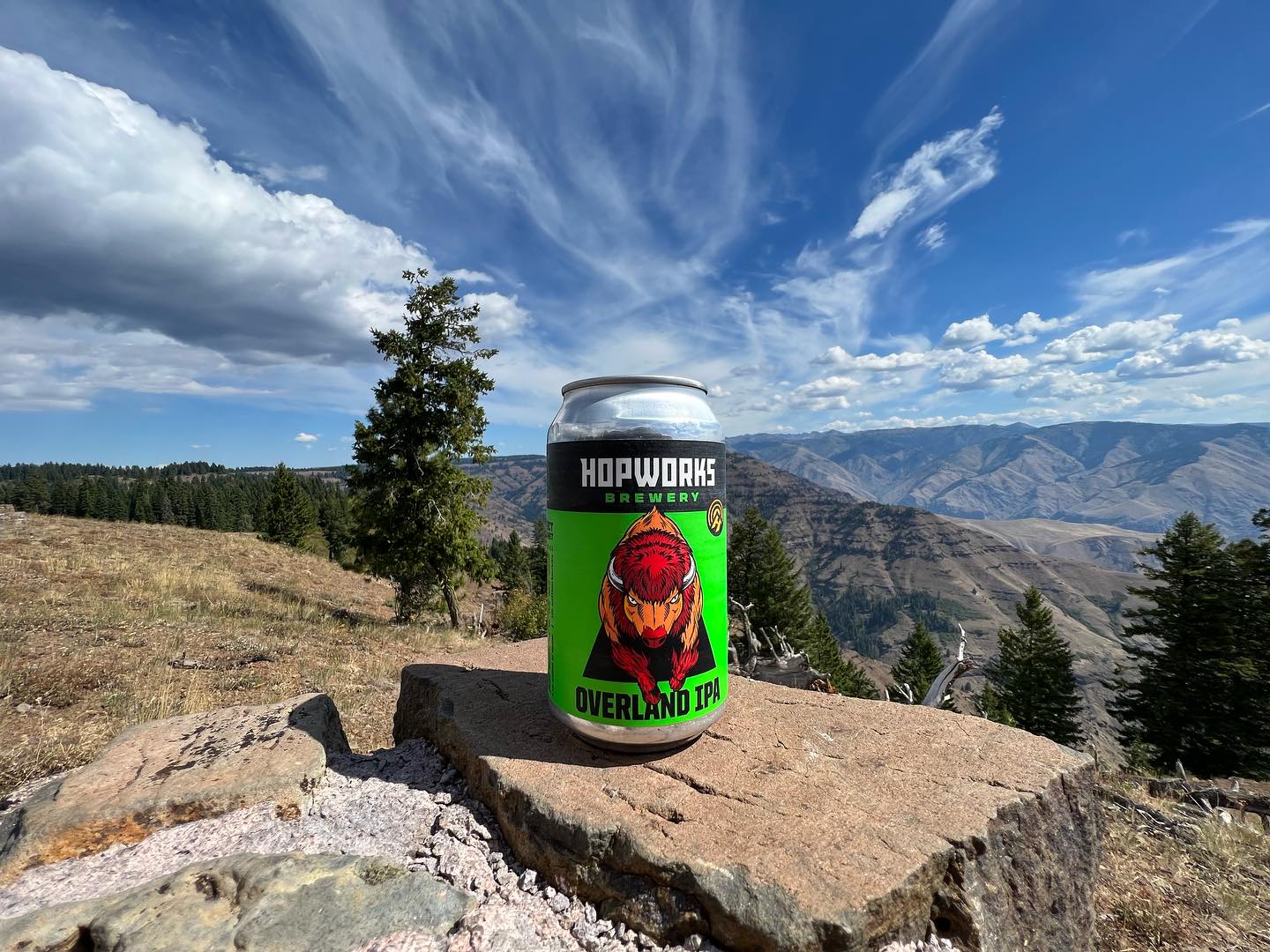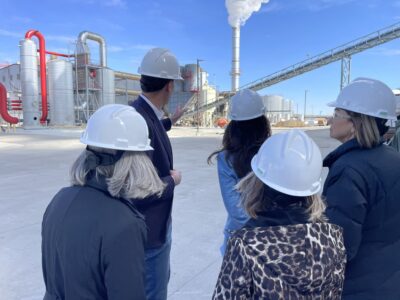Oregon’s Hopworks Brewery has one main mission: to create beer and food with sustainable business practices. Founded in 2008, the brewery works with numerous local businesses to ensure the local and sustainable creation of its brews.
It also has dozens of clean energy processes and systems in place to ensure optimal energy efficiency and significantly reduce its carbon footprint. In 2015, Hopworks earned B Corp certification, and the company says it became the first brewery in the Pacific Northwest and only the seventh in the world.
Christian Ettinger, co-founder and brewmaster of Hopworks Brewery, talked to The Business Download (TBD) about the importance of sustainability in everything the company does.
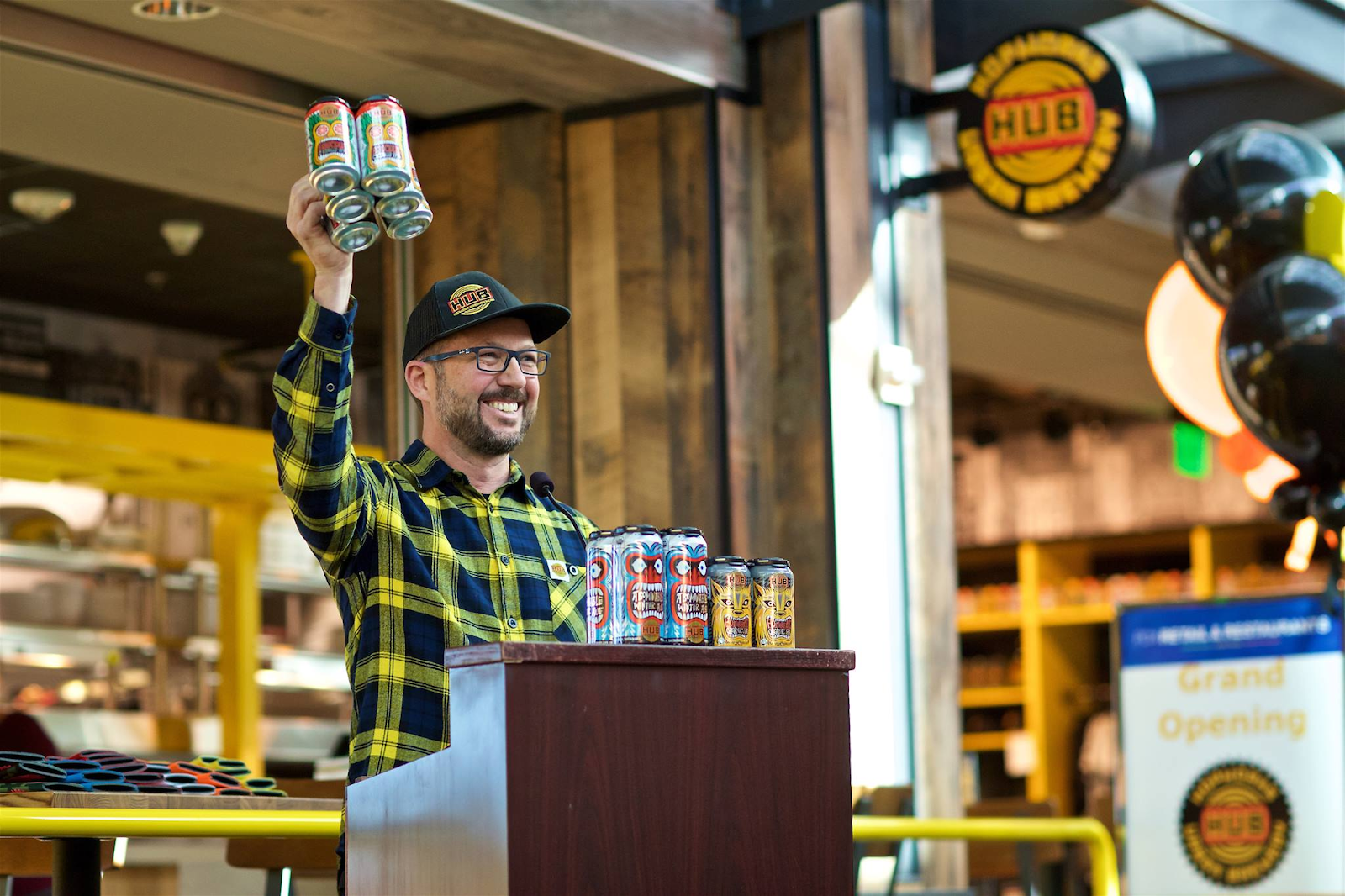
Photo Courtesy Hopworks Brewery
TBD: Why is sustainability so important to Hopworks?
Ettinger: We are fortunate to live in the Pacific Northwest, where the ocean and the mountains and the forests and rivers are all a big part of our lives. We spend time in these spaces, and as a business owner, I wouldn’t be able to sleep at night if I weren’t doing my part to preserve them for future generations.
In our 16 years in business, we’ve always put sustainability at the heart of what we do. We built our brewery in an existing building, using reclaimed materials as much as possible and recycling or upcycling the things that we removed.
Our landscaping was designed with drought-tolerant native species that appeal to pollinators, and our parking has pervious pavers to divert water from storm drains.
All of these things take thought, but the collective impact makes it all worthwhile.
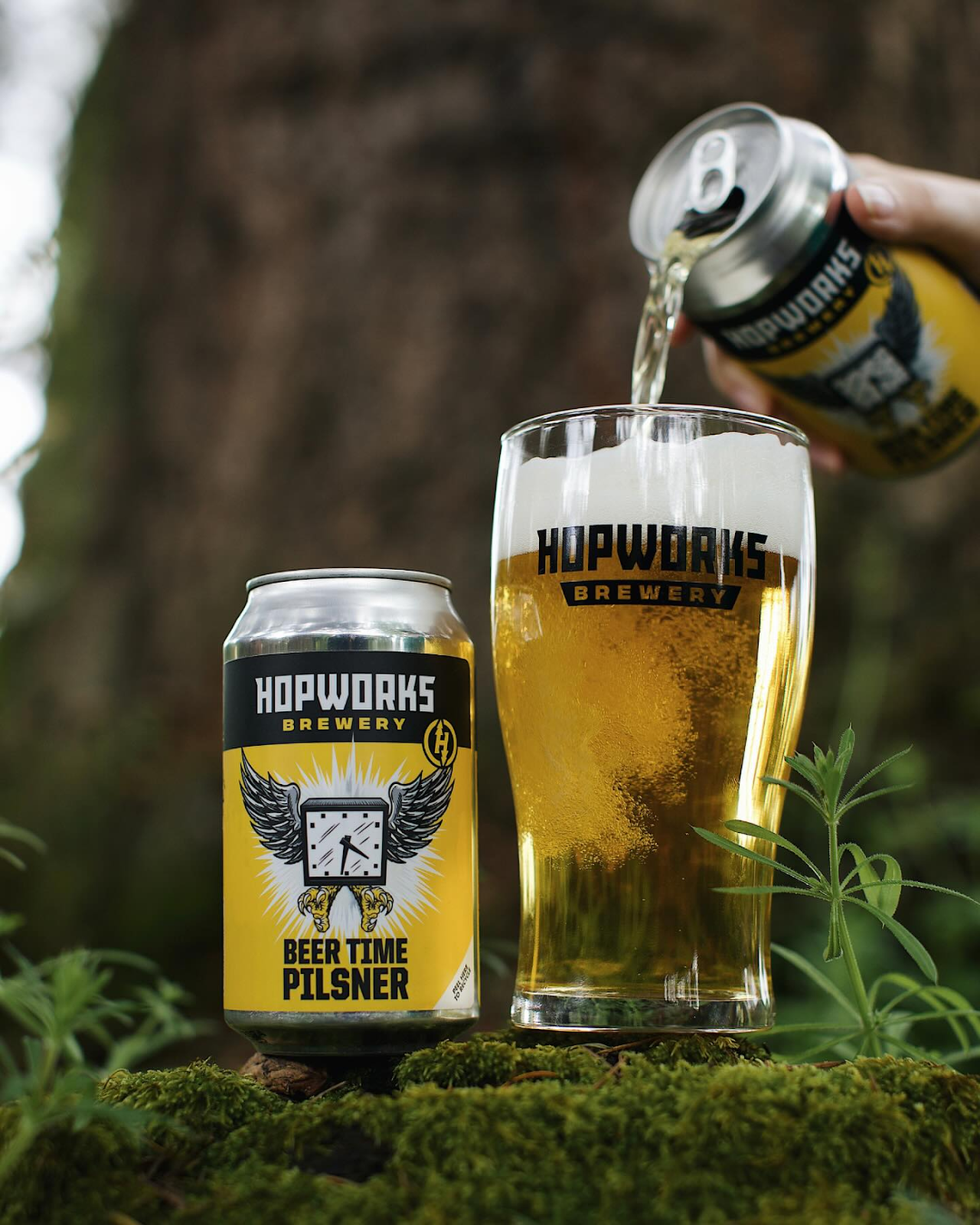
Photo Courtesy Hopworks Brewery
TBD: What are some operational processes you have in place to reduce the brewery’s environmental impact?
Ettinger: We are always looking for new ways to reduce our impact. Right now, we’re investing in equipment to install a high-efficiency brewhouse, which will significantly reduce our water, natural gas, and electricity consumption. We also evaluate our suppliers’ practices to prioritize partnerships with like-minded companies.
We purchase 100% certified renewable energy to operate our facilities, and our sales teams drive hybrid vehicles to meet with customers.
One of our locations has 30 300-watt solar panels, and we have responsive LED lighting in our warehouse and brewery that automatically shuts off when nobody’s around.
Last year, we started the Malt Bag Recycling Program with Country Malt Group and successfully recycled 30,000 pounds of bags destined for the landfill from local breweries and distilleries.
It’s important to me that we examine every detail of what we’re doing to find ways to do it better. Everything from our walk-in coolers to our glycol system has been optimized for energy efficiency.
TBD: How does Hopworks reduce food waste?
Ettinger: Our menus are designed to cross-utilize food items in multiple dishes, and our kitchen teams are trained to use prep techniques that maximize the yield on the vegetables, cheese, and bread. We work with a local organization, Urban Gleaners, to distribute edible food remaining each day to families in need. This amounts to about 1,000 pounds annually.
Whatever is inedible, we compost. Our program diverts 95% of our waste from the landfill, including our spent grain going to farmers. Less waste is good for every business.
TBD: What are some of the challenges you face in securing local ingredients?
Ettinger: Is it local? Is it organic? Is it family-owned? These are some of the questions we ask. Our challenges are similar to what so many small businesses are facing right now. Costs are high, the number of small farms and food producers is shrinking, and the climate is changing, which impacts the seasonality of all of our ingredients.
I think it’s important to pay a little extra when we need to in order to uphold our commitment to our customers, our vendors, and our own brand. Our customers — some of whom have grown up visiting us as kids and are now bringing their own families in — understand what’s important to Hopworks. They trust us to walk our talk.
So, we continue to support those small family farmers who grow the hops and grains for our beer and the tomatoes and potatoes for our restaurant as much as we possibly can. Our rigorous supplier screening asks tough questions and helps us identify good partners.
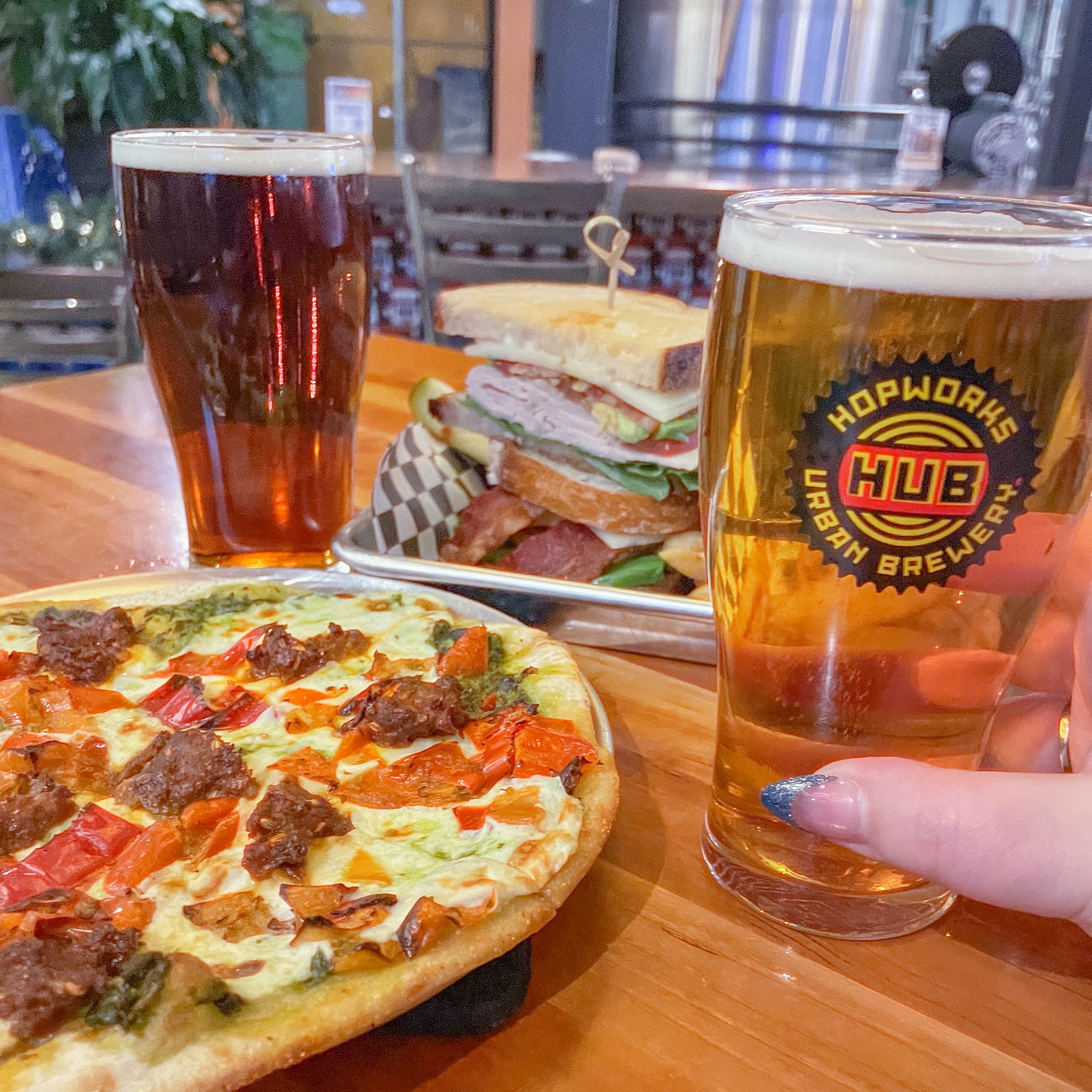
Photo Courtesy Hopworks Brewery
TBD: You encourage your employees to volunteer within the community. Why is this important to the business?
Ettinger: Being a sustainable business is about more than just our impact on the environment. We feel responsible for being good neighbors, good members of the community, and active participants in making it better. We send our employees out to do hands-on work to improve the world around us by planting trees and participating in neighborhood cleanups. And we build relationships with local organizations who have the same goals. Because we’ll make a bigger difference if we work together.
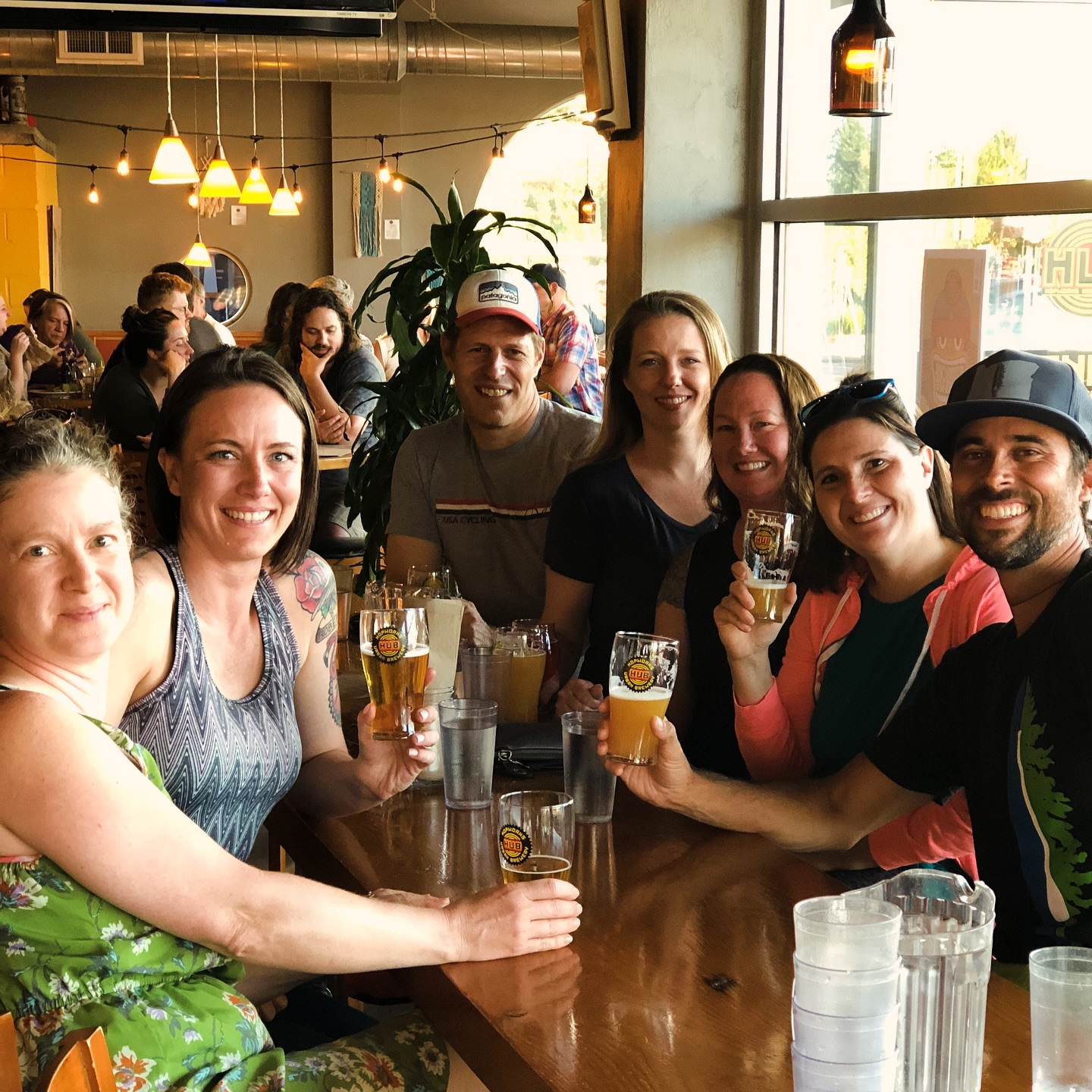
Photo Courtesy Hopworks Brewery
TBD: What do you hope to inspire in other breweries?
Ettinger: Our dream is to see more businesses become Certified B Corps. It’s a rigorous process but with good reason. It holds a company to the highest standards of sustainability and provides education, support, and a clear scorecard to encourage continuous improvement over time. This kind of accountability on a large scale can have a real, visible impact on the world around us. And we’ve proven that it’s 100% achievable for a brewery.

